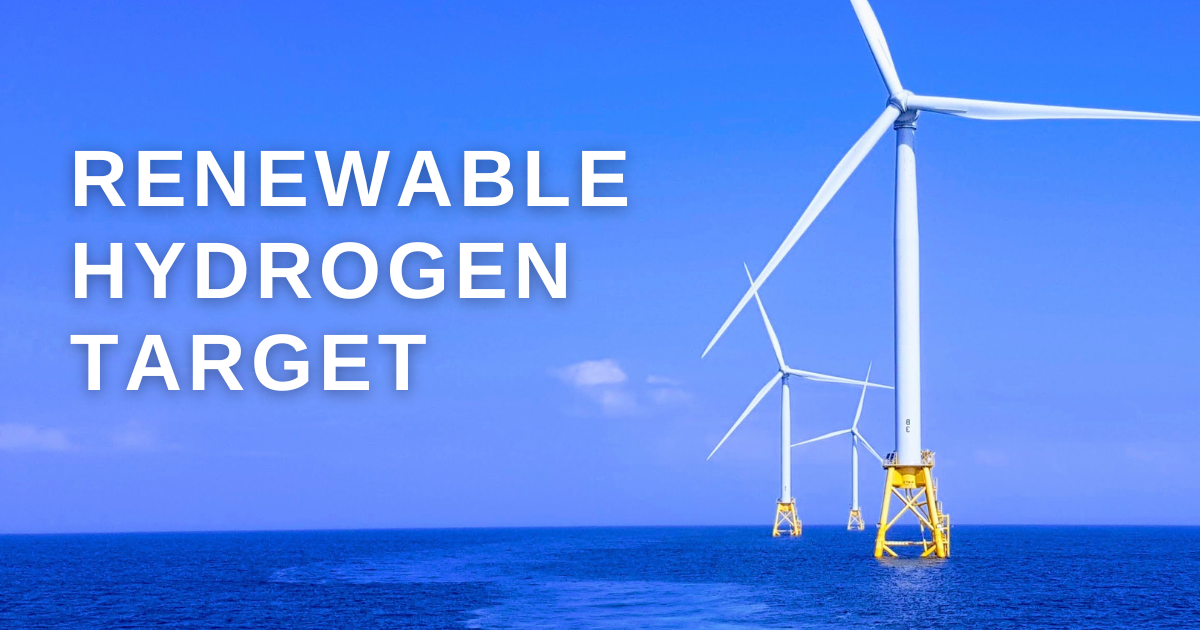The WA State Government started developing options to mandate Renewable Hydrogen as a fuel source in WA’s electricity grid. See more information here.
A Renewable Hydrogen Target for Western Australia (www.wa.gov.au)
Below is an excerpt from Change Energy’s submission.
Electricity generated from hydrogen is not yet commercial
Although (renewable) hydrogen has been at the forefront of decarbonisation discussions around the world, we note this is not a new technology. Hydrogen provides an alternative to batteries for storing intermittent energy until it is required, and therefore is likely to play an important part of our fuel mix at some point in the future. Currently, hydrogen does not appear to stack up as a commercial proposition. This is because:
- as a gas alternative for electricity production, hydrogen is still expected to be three-times more expensive, even with the inclusion of cost efficiencies that would be achieved from a 10 per cent target[1]; and
- as an alternative source of storage, current hydrogen storage technology remains less cost effective than batteries at least until 2050 according to the CSIRO’s GenCost Report[2].
While Change Energy understands why the State Government may want to stimulate local demand for, and therefore development of the hydrogen industry in WA, the current evidence does not show that there will be anything close to a net benefit for the state.
We are not suggesting that hydrogen will never become commercial, and we advocate continued independent development of renewable hydrogen as a generating technology. However, we consider the commercial maturity of renewable hydrogen should occur organically, driven by traditional market forces, and not via an arbitrary state-imposed target.
The cost will fall on those who can least afford it
Change Energy is concerned that the costs of pursing the uncommercial proposition of hydrogen as a generation fuel source will fall on customers. Moreover, it will add significant costs to customers who are already struggling with rising utility bills.
We are currently in an economic environment where the cost of living is a concern for much of our population. To compound this, energy costs are on the rise[3]. A tripling of any portion of a consumer’s electricity bill is likely to be significant. Those who do not have the means to reduce their energy costs through efficiency measures and installing behind the meter renewable resources are going to bear the cost of this target. Those customers who can afford to reduce their energy served from the SWIS will reduce their network usage, thereby pushing a higher proportion of network costs onto those who are unable to.
We note that non-contestable customers are expected to be protected from this price increase at least in the near term due to the Government mandated price caps. However, this will be a cost borne by Synergy and underwritten by taxpayers
It is unclear how the market will ‘be made’
While the idea of a renewable hydrogen target is credible, implementing of such a scheme is difficult. An obligation on retailers to meet electricity requirements with a certain percentage of hydrogen can work in theory. However, with a non-commercial product, in a highly subsidised and largely artificial market, there are considerable risks.
Change Energy is concerned there is an increasing risk with generation scale, and that only a few, or a potentially a single producer may dominate the market, with the potential for monopoly pricing.
It is not clear how the proposed target will be implemented in a way that encourages competition. Before a renewable hydrogen target is progressed further, careful consideration must be given on how a mandate to purchase an uncommercial product can be positioned as being in the best interests of those being obliged to purchase it, or the consumers who will ultimately be paying for it.
Potential alternative options
Change Energy supports State Government initiatives like those being progressed at Oakajee. We consider is merit in supporting the development of green hydrogen production technology and production projects over the coming years. However, we consider support on a merits basis is preferential to an arbitrary reallocation of energy costs between energy resources and sectors of the supply chain to be unacceptable.
Change Energy considers as with any other technology, the costs of green hydrogen will become commercial and competitive with natural gas and battery storage over time. At that point, the introduction of hydrogen in the fuel mix in the SWIS will be more sustainable, equitable, and in the long-term interests of consumers.
Please contact us if you would like more information.
[1] As provided for in Table 3 of the Consultation Paper.
[2] Available at: https://publications.csiro.au/publications/publication/PIcsiro:EP2022-2576/SQgencost%20report/RP1/RS25/RORECENT/STsearch-by-keyword/LISEA/RI2/RT8
[3] For example, the Economic Regulation Authority’s recent Draft Decision on the Western Power Network sees ~8 per cent per annum increases over the next five years. Network costs make up almost half a customer’s bill. In addition, AEMO’s data dashboard for the WEM shows wholesale electricity prices over the last month frequently double that of two years ago.

